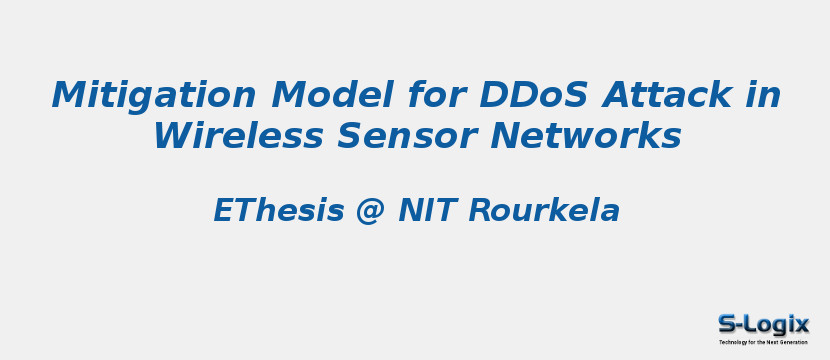Research Area: Wireless Sensor Networks
A Denial-of-Service is an attack in which the attackers send certain messages to the target systems or target servers with a purpose and intention of shutting down those system or servers. Those messages cause such an impact to the victim that it makes its servicesunavailable or not responding for the users. When a DoS attack is implemented in large number, then it is referred to as a DDoS or Distributed enial-f-Service attack. In this,the attackers uses a large number of controlled bots called zombies and reflectors which are the innocent computers exploited to generate the attack. There are various kinds of DDoS attacks which depletes network bandwidth as well as its resources. We have particularly focused upon flooding kind of attacks. In this server’s capacity is exploited by sending huge number of unwanted requests with a purpose of failure of server’s processing efficiency. Since there is a limit to number of packet requests a server can effectively process. If that limit is exceeded, servers performance gets egraded. In this thesis, we have followed an approach for mitigating DoS/DDoS attack based on the Rate Limiting algorithm, used to mitigate flooding resulting to the attack applied at the server-side. Packet filtering has been done on the basis of legitimate TTL values of the incoming ackets followed by the ordering of packets to be sent to the server. Ordering of packets is performed with two approaches, one with the existing FCFS approach and other Priority queue approach and the server performance is compared. The implementation is carried out on the simulation tool MATLAB. The results show that there is considerable decrease in the two host and network based performance metrics that are Packet drop and Response time under DoS and DDoS attacks. When only legitimate packets are passed to the server after packet filtering, response time and throughput improves and after packet scheduling it even gets better.
Keywords:
Author(s) Name: Gond, Shruti and Nath, Aishwarya
Journal name: Computer Science
Conferrence name:
Publisher name: SEMANTIC SCHOLAR
DOI:
Volume Information:
